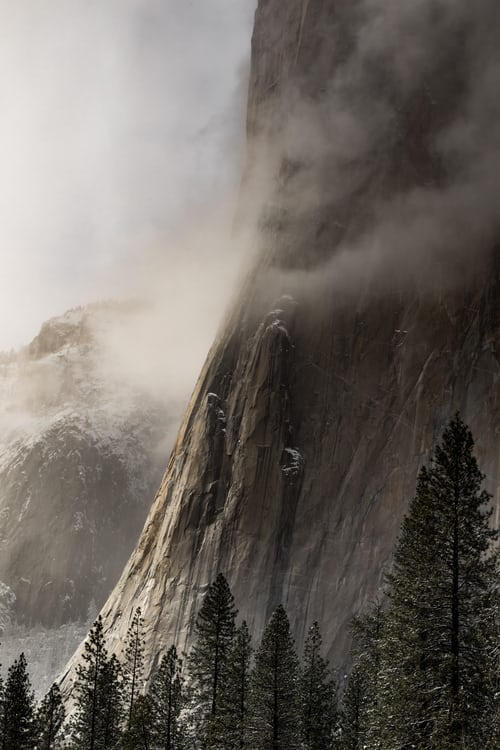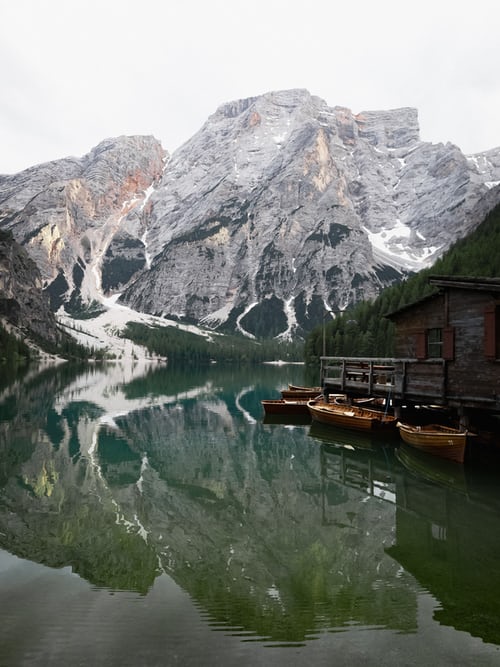- Home
- Process Worldview
- Community
- Art and Music
- Whitehead and Process Thinking
- Podcasts
- Spirituality
- Ecological Civilization
- Education
- Contact
- Social Justice
- Science
- Animals
- Sacred Poems
- Whitehead Videos
- Index of All Titles
- Practicing Process Thought
- Process Spirituality: A Spiritual Alphabet
- Recent Posts
So how can we hope for repair of the world?...Not by ignoring the spirit of wisdom that whispers, that breathes, within each of us always. Each of us individually. |
Three Promises
I encourage you to read Catherine Keller's pastoral letter. It's filled with much wisdom, articulated beautifully. Here's one of my favorite phrases:
"Each, only in our all-togetherness."
She uses the phrase as an invitation for us to respond lovingly, to be catalysts of transformation, in our pandemic age. I'd like to add another phrase.
"All-together, each with our beloved eachness."
By beloved eachness I mean the unique particularity of each finite being, human beings much included. I'll add this phrase, not only to remind us, as Catherine Keller does, that each of us is called as an individual to be a catalyst for change, and also to remind us that the victims of the pandemic suffer as individuals, as do those in the first line: the health care workers, the clerks, the delivery drivers, the police, and so many more. I think she might approve. I know her. She's an "each," too.
Which takes me to my first promise. I promise not to talk about the interconnectedness of all things without remembering the uniqueness of each individual. And I promise not to talk about the uniqueness of each individual without emphasizing the interconnectedness of all things. I promise to keep in mind individuals and communities. That’s my first promise.
Here’s the second. I promise not to fall into the trap of thinking that individuals and communities are somehow left on their own, totally devoid of spiritual resources for responding to whatever befalls them. I promise to keep in mind the still small voice within my heart, and within each human heart, who can be named Love and God. I promise not to be too picky about the names, but to encourage myself and others to hear and respond to the voice with concrete action.
Which takes me to my third promise. I must prepare the way by a few promissory asides that may be of interest primarily to theologians. I'll call them sub-promises.
For one thing, I sub-promise not to get too argumentative about theological matters, because I know people can have loving hearts and do great good in world while embracing views contrary to my own. And I know that my own views do not always result in a loving heart and good deeds on my part. I know me!
Nevertheless, along with Catherine Keller, I sub-promise to resist four ideas that can often harm people: (1) that the pandemic is an act of punishment on God’s part, on Love’s part; (2) that it is a collective test imposed upon all of us, the victims of which include the vulnerable, (3) that it is God teaching us a lesson, showing how interdependent we are, and (4) that it is God’s way of repairing a world out of balance. Yes, the pandemic may be nature’s way of repairing an imbalance, and, yes, the pandemic does put me and almost all of us to a test. But as I see things, God is not in the test-giving business; God’s preoccupation is not with reward and punishment. I’m a Christian, after all, and I see God in the vulnerable, love-aspiring life of window Jesus. I say window Jesus because he is my window to the divine. Inspired by him, I think God is love.
I guess I need to add one more more sub-promise one more idea. I sub-promise (5) to avoid the idea that none of this really matters anyway, because all that truly matters is a heavenly afterlife. Please understand: I myself hope that there is a continuous journey after death. It’s not just that I’d like to continue after death and be reunited with loved ones. I would love that and hope something like that happens. But what truly motivates me is the hope that those who die in such incompleteness, and sometimes great pain, get to experience some happiness after death, after which they can be absorbed into the deep ocean of love. The problem is not death but incompleteness. Nevertheless, like brother Jesus I believe in the tremendous value and beauty of this very life. I think we’re all pretty lucky to get to enjoy it. I think you can believe in the value of a continuing journey after death and the value of this life.
Here, then, is the third promise. I promise to find my way of doing something each day, practically and concretely, to spread threads of love here and there in the world, which may help build the kind of loving community that has always been God’s aim, love’s aim, for us humans on this small and fragile planet. I’ll keep in mind the Zen expression: “The essence of enlightenment is not anything supernatural, it’s just that, when I fall down, I get up again.” I promise to get up when I fall down, for as many days as I have, and to love others in practical ways, whatever ways are available to me. In this way, I will cooperate with the Spirit, in whose arms we’re all-together lovingly held, each one of us and all-together, as we travel on such a small and beautiful planet, sometimes frightened, sometimes discouraged, but nevertheless hopeful, filled with capacities for courage we barely understand, touched by the embrace we didn't even have to earn.
- Jay McDaniel
"Each, only in our all-togetherness."
She uses the phrase as an invitation for us to respond lovingly, to be catalysts of transformation, in our pandemic age. I'd like to add another phrase.
"All-together, each with our beloved eachness."
By beloved eachness I mean the unique particularity of each finite being, human beings much included. I'll add this phrase, not only to remind us, as Catherine Keller does, that each of us is called as an individual to be a catalyst for change, and also to remind us that the victims of the pandemic suffer as individuals, as do those in the first line: the health care workers, the clerks, the delivery drivers, the police, and so many more. I think she might approve. I know her. She's an "each," too.
Which takes me to my first promise. I promise not to talk about the interconnectedness of all things without remembering the uniqueness of each individual. And I promise not to talk about the uniqueness of each individual without emphasizing the interconnectedness of all things. I promise to keep in mind individuals and communities. That’s my first promise.
Here’s the second. I promise not to fall into the trap of thinking that individuals and communities are somehow left on their own, totally devoid of spiritual resources for responding to whatever befalls them. I promise to keep in mind the still small voice within my heart, and within each human heart, who can be named Love and God. I promise not to be too picky about the names, but to encourage myself and others to hear and respond to the voice with concrete action.
Which takes me to my third promise. I must prepare the way by a few promissory asides that may be of interest primarily to theologians. I'll call them sub-promises.
For one thing, I sub-promise not to get too argumentative about theological matters, because I know people can have loving hearts and do great good in world while embracing views contrary to my own. And I know that my own views do not always result in a loving heart and good deeds on my part. I know me!
Nevertheless, along with Catherine Keller, I sub-promise to resist four ideas that can often harm people: (1) that the pandemic is an act of punishment on God’s part, on Love’s part; (2) that it is a collective test imposed upon all of us, the victims of which include the vulnerable, (3) that it is God teaching us a lesson, showing how interdependent we are, and (4) that it is God’s way of repairing a world out of balance. Yes, the pandemic may be nature’s way of repairing an imbalance, and, yes, the pandemic does put me and almost all of us to a test. But as I see things, God is not in the test-giving business; God’s preoccupation is not with reward and punishment. I’m a Christian, after all, and I see God in the vulnerable, love-aspiring life of window Jesus. I say window Jesus because he is my window to the divine. Inspired by him, I think God is love.
I guess I need to add one more more sub-promise one more idea. I sub-promise (5) to avoid the idea that none of this really matters anyway, because all that truly matters is a heavenly afterlife. Please understand: I myself hope that there is a continuous journey after death. It’s not just that I’d like to continue after death and be reunited with loved ones. I would love that and hope something like that happens. But what truly motivates me is the hope that those who die in such incompleteness, and sometimes great pain, get to experience some happiness after death, after which they can be absorbed into the deep ocean of love. The problem is not death but incompleteness. Nevertheless, like brother Jesus I believe in the tremendous value and beauty of this very life. I think we’re all pretty lucky to get to enjoy it. I think you can believe in the value of a continuing journey after death and the value of this life.
Here, then, is the third promise. I promise to find my way of doing something each day, practically and concretely, to spread threads of love here and there in the world, which may help build the kind of loving community that has always been God’s aim, love’s aim, for us humans on this small and fragile planet. I’ll keep in mind the Zen expression: “The essence of enlightenment is not anything supernatural, it’s just that, when I fall down, I get up again.” I promise to get up when I fall down, for as many days as I have, and to love others in practical ways, whatever ways are available to me. In this way, I will cooperate with the Spirit, in whose arms we’re all-together lovingly held, each one of us and all-together, as we travel on such a small and beautiful planet, sometimes frightened, sometimes discouraged, but nevertheless hopeful, filled with capacities for courage we barely understand, touched by the embrace we didn't even have to earn.
- Jay McDaniel






